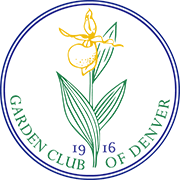Composting breaks down organic materials into a reusable soil full of micorganisms that returns valuable nutrients to our soils and keeps organic materials out of landfills. Landfills are a top source of methane, a greenhouse gas 72 times more powerful than carbon dioxide. Landfills can also contaminate groundwater and contribute to local air pollution.
Recycling takes manufactured products that might otherwise be considered waste and converts them into a new use, typically by breaking down the products into raw materials again and reusing those materials to create something new or different.
There seems to continue to be questions about what can go in the larger municipal composting bins (Green carts in Denver). Certain products like take away coffee cups (Starbucks cups for instance) paper plates, and take away food boxes are coated in a plastic that does not break down in the compost process. Almost all plastic-coated paper products are coated by an impregnation process with low-density polyethylene (LDPE). This and other petroleum-based coatings used for these applications do not biodegrade. These products include milk and juice cartons, hot and cold paper drinking cups, frozen food containers, plastic-lined paper bags, take-out containers and some paper plates. The plastic-coated paper products produce both macro- and micro-fragments of non-biodegradable plastic which contaminate the finished compost. Once these plastics are dispersed into the environment, they have not been shown to biodegrade and are suspected of causing detrimental effects to organisms in a variety of ecosystems. Compost collection programs and compost facilities must exclude plastic-coated paper products from their guidelines to prevent future harm.
How do you know if it’s truly compostable?
It’s really hard tell. The products marked with ASTM 6400, EN 13432 or the Biodegradable Products Institute (BPI) standards are truly compostable.
What about other paper products?
pizza boxes, paper towels, tissues and paper napkins are safe for composting. These products, often referred to as “soiled paper,” are made entirely of paper fibers and can be composted in a home compost bin or through a curbside composting program. (Frozen pizza or other frozen food boxes and hand or surface wipes are not compostable.)
What can go in my Purple (for City of Denver Residents) Bin?
All food and beverage cartons, including: Milk (dairy, soy & almond); Juice; Cream; Egg white & egg substitute; Soup & broth; Protein drinks; Eggnog; Wine; Tofu; Small juice boxes; and Ice cream & frozen yogurt. (remove lids, don’t flatten)
Glass—jars, bottles, (remove metal lids—can be recycled too, but need to be removed)
Metals- Aluminum foil, plates, cans (clean as possible)
Cardboard: boxes, cereal boxes. NOT Waxed cardboard
Paper: junk mail!, newspaper, magazines and catalogs
Plastics: Rigid plastic bottles, jugs, jars, tubs, cups and containers marked with the #1 through #7 in the recycling symbols.
NO plastic bags, plastic lids or caps
NO Stryofoam, plastic shrink wrap
NO plastic toys or plastic toothpaste type tubes
NO “K-cups” or individual coffee creamers
NO plastic marked as PLA, compostable or made from plant based materials
NO plastic containers larger than 3 gallons in size
What goes in my Green Bin (For City of Denver residents)?
Food
Paper Towels
Paper napkins
Yard debris
Soild cardboard—if it’s not “shiny” it is not coated and can be composted
Only products marked with ASTM 6400, EN 13432 or BPI Standards
Wax paper—wax coated produce boxes (apple and peach boxes)
If in doubt, leave it out!
How can I read more and get a list of compostable products?
https://www.ecocycle.org/files/pdfs/compostable_products_for_food_services.pdf
Ecocycle.org is a great resource with plenty of links to products and information on composting!
WINE CORKS
Corks do not go in the recycling bins or compost bins. However, there is an organization that will collect used corks for recycling. This might be something we can do as a club.
Check this out. https://www.yemmhart.com/materials/winecork/wine_cork_recycling.html
The Hancock Park club in Zone XII is suggesting their members bring corks to the General Meeting in the spring. I suggest we collect here for the general meeting or send them away. Please contact me or Deborah if you are interested in helping to collect
